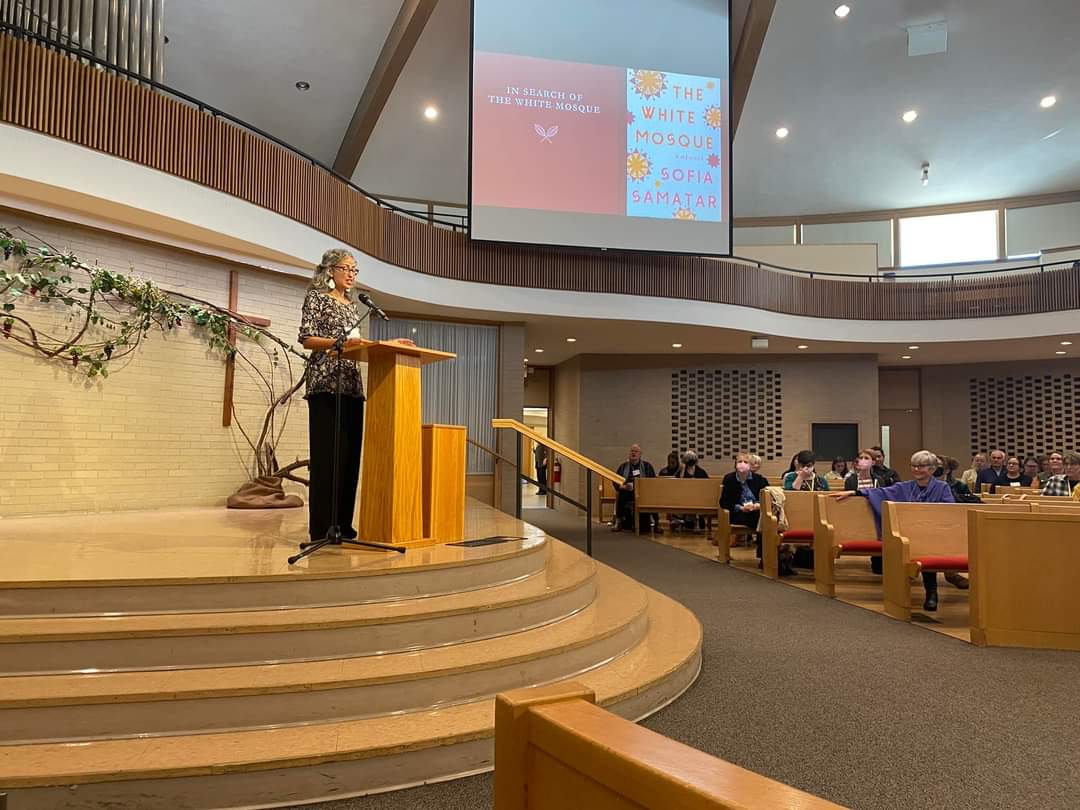Goshen College hosted the Mennonite/s Writing Conference from Thursday, Sept. 28, to Sunday, Oct. 2, for the third year since 1990. The theme, “Celebrating 30 Years: Looking Back, Looking Forward,” featured several writers who shared works ranging from poetry to novels.
This conference celebrated collective history and heritage while looking into the future of what Mennonite writing holds.“Before the conference, Mennonite writers often felt at the margins of Mennonite life or were alienated from the church,” said Ann Hostetler, professor emerita of English at GC and chair of the conference planning committee.
“Once the conference took place,” she continued, “Mennonite media began to publicize these writers to Mennonites–many of them readers, but not looking to their denomination for artistic voices.”
Workshops were led by Casey Plett, Julia Spicher Kasdorf and Steven Rubin.
Book signings also took place with Sofia Samatar, Rachel Yoder, Patrick Friesen and conference founder Hildi Froese Tissen.
Several of those featured at the conference are GC alums, including Samatar, an award-winning writer and professor at James Madison University and Ervin Beck, professor emeritus of English.
“What I love about the conference … is its range of new voices, from Sofia [Samatar] to transgender writer Casey Plett and upcoming voices like Daniel Shank Cruz,” said Jessica Baldanzi, chair of the GC English department.
As for Beck, he said, “[The] most exciting is keeping in personal touch with friends from a distance, hearing from favorite writers and getting acquainted with exciting new, younger Mennonite writers.”
Samatar presented a convocation talk where she discussed her book “The White Mosque” while covering ideas of writing, identity and community.
“I write because I don’t know another way to understand the world on a deep, satisfying level,” Samatar said. “As a person who’s addicted to reading and writing and not very good at anything else, it seems like the right job for me.”
Some GC students also attended the workshops and conference for one class credit.
Among these students was Augusta Nafziger, a senior writing and music major. She and other peers were required to participate in a four-hour workshop, a plenary session and three other conference events.
Nafziger explained that her favorite part of the conference was the panel on speculative fiction as she learned that “sometimes fiction is the best way to express something that is very nonfictional … that you’ve experienced, an event in your life.”
Although she was “very much on the younger side of the spectrum in terms of age,” Nafziger said it “felt like a class reunion” rather than an isolating experience.
Samatar has attended every conference held by GC, explaining that “it’s full of variety” and that “you can listen to people read poetry or analyze literature and history.”
“There’s so much going on and so many interesting writers present,” she added. “For a book person, there’s nothing better.”



